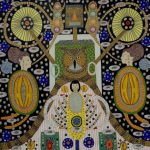Conversations | Salam: The First ****** Nobel Laureate
Biopic explores the intellectually-vibrant life of Abdus Salam, the first Pakistani Nobel Laureate.
After more than a decade of creation, the NYFA Fiscally Sponsored documentary film, Salam: The First ****** Nobel Laureate, is premiering to audiences in the U.S. and abroad.
The biopic explores the intellectually-vibrant life of Abdus Salam, the first Pakistani Nobel Laureate, who was lauded internationally for his contributions to theoretical physics but whose legacy has been veiled in obscurity in his homeland. Aware of an absence in public historical records regarding Salam, Producer Zakir Thaver and his team embarked on this film project to provide a more inclusive history, one fraught with politics and religious intolerance, and to bring to light what was forgotten: Salam’s charismatic brilliance and achievements in his home country and abroad. See below for NYFA’s interview with Thaver about the making of Salam.
Don’t miss your chance to watch this newly-released documentary on the big screen:
Screening and Q&A
When: October 25, 7:30 PM
Where: Columbia University Havemeyer Hall, Room 309, 3000 Broadway, New York, NY 10027
RSVP: Register to attend here.
South Asian Film Festival of Montreal
When: October 28, 2:30 PM
Where: Cinéma de Sève, 1400 Boulevard de Maisonneuve O, Montréal, Canada
International Science Film Festival Pariscience
When: October 29, 8:00 PM
Where: Institut de Physique du Globe de Paris, 1 Rue Jussieu, Paris, France
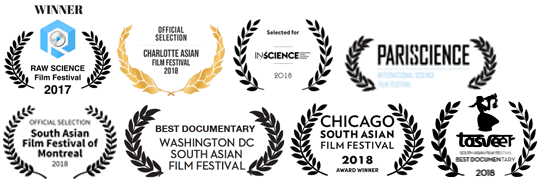
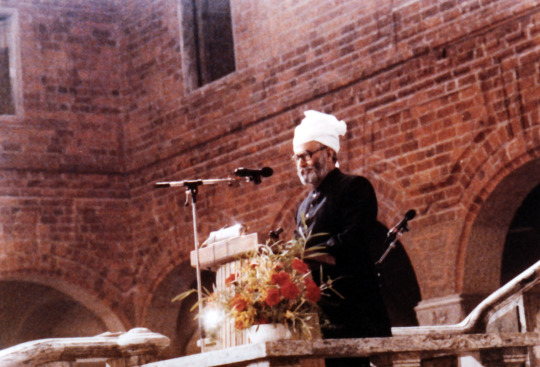
NYFA: What sparked your and your co-producer’s interest in making Salam?
Zakir Thaver: We read Salam’s obituary in college in the U.S. in 1996. We discovered we knew very little about Salam despite being science students. We felt this amazingly inspirational story had been kept from us. After we graduated we took it upon ourselves to try to tell it.
NYFA: When beginning your research for the film, you noticed that there was not a lot of archival material dedicated to Abdus Salam’s life. What was the process like for collecting archival material for the film? Where do these archival materials live now?
ZT: The International Centre for Theoretical Physics, which Salam co-founded in Trieste, Italy, had archives. The bulk of them were in print, however. It did have some recordings of Salam’s interviews but these weren’t nearly enough to tell Salam’s story visually. So we began to obsessively scour the world’s libraries and networks for video and audio material. The Salam family had lots of photos which they shared. When we started editing, we had the largest Salam archive anywhere on the planet. If Salam spoke anywhere—from Multan, Pakistan to South Korea—and a recorder was on, we pretty much had it. We have all of this on a huge hard drive. We plan to create the ultimate online Salam portal and/or share it with a library.
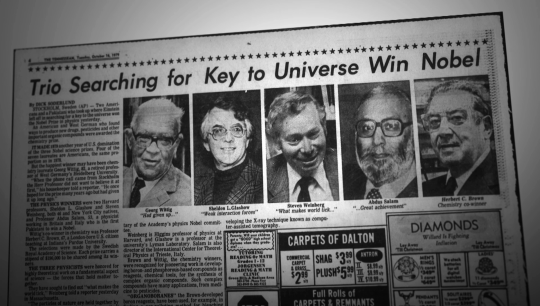
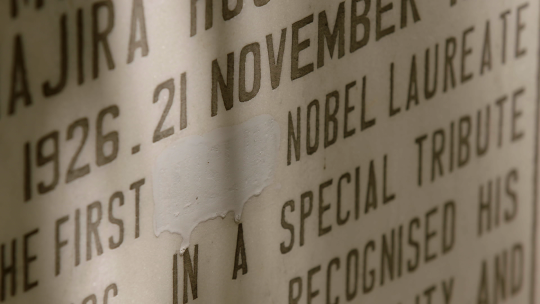
NYFA: Abdus Salam was an overlooked figure in Pakistan despite his scientific achievements and his devotion to Islam. What beliefs made him a ‘heretic’ in Pakistan? How did Salam reconcile science and faith?
ZT: The Ahmadis were declared non-Muslims by an act of the Pakistani parliament in 1974 as they believe the founder of their ‘movement’ was a prophet, which seems to run counter to mainstream Islam. The Ahmadi community is arguably the most persecuted religious minority in Pakistan. This is precisely the reason why Salam is overlooked in the country. It’s not because his science was esoteric, but because he had the “wrong” religious affiliation. Salam has said different things at different times about how he reconciled science and religion. For the most part, however, he invoked what Stephen Jay Gould called NOMA (non-overlapping magisteria), the idea that science and religion are domains that don’t overlap and can coexist.
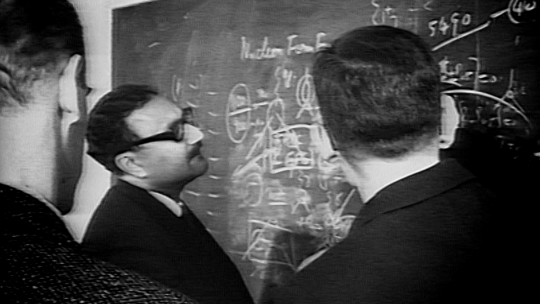
NYFA: How has Salam’s status as a ‘heretic’ affected the film? Have you had to alter or change it in any way?
ZT: We were adamant about not letting anyone on the outside influence our collective decision to include the persecution of the Ahmadis in the film. Over the years, a number of people offered us money on the condition that we’d leave out the Ahmadi issue and present Salam only as an illustrious Pakistani. We refused. We only cut out what seemed gratuitous given the length and biographical focus of the film. None of us who worked on the film belong to the Ahmadi community, so it was easier to take an objective stance at explaining what the sect is about and why mainstream Islam has an issue with it.
NYFA: Do you see this film as a means to change Pakistani’s feelings towards not only Salam’s legacy, but also other Pakistani of the Ahmadiyya community?
ZT: The one thing the film does make apparent is that societies pay a price for prejudice. Pakistan missed out on an amazing scientific legacy. Had Salam been allowed to influence the direction of science in Pakistan, things might have been very different. Just recently an illustrious Pakistani-born economist, also Ahmadi, was appointed to Pakistan’s Economic Advisory Council only to be asked to step down a few days later. It’s history repeating itself. What Pakistan once lost out first in science, it’s now lost out in the social sciences. We like to believe the film makes a case for coexistence through a moving, emotional human story. But also, by design, you leave a film with more questions than answers. So we hope people talk about wanting to rethink some of the erroneous ideas they’ve taken for granted growing up.
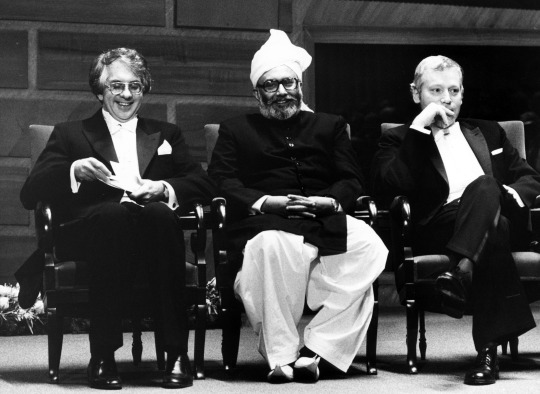
NYFA: Why did you choose NYFA Fiscal Sponsorship?
ZT: A lot of colleagues at a production company in New York would rave about NYFA, which held an amazing session on grant writing or had just become their dream documentary’s Fiscal Sponsor. So when it came time to find a fiscal sponsor, one knew where to go. It’s been incredible to work with a great team without whose support the film would never have seen the light of day.
-Interview conducted by Priscilla Son, Program Associate, Fiscal Sponsorship & Finance, and Eleysha Sajous, Fiscal Sponsorship Intern
Images (from top): Salam family photo/event photo by Anand Kamalakar; Salam family photos; PARS International Corp.; Kailoola Productions; RAI TV Italy screen grab; SIPA USA; Photos Courtesy: Zakir Thaver, Producer of Salam



